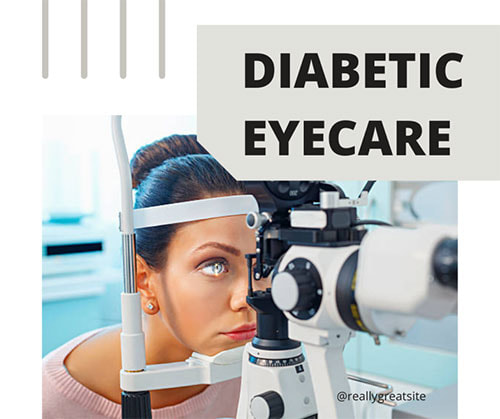Posted by: North Georgia Eye Associates in Blog

What is Diabetic Retinopathy?
According to the National Eye Institute, diabetic retinopathy is an eye condition that can cause vision loss and blindness in people who have diabetes. It affects blood vessels in the retina (the light-sensitive layer of tissue in the back of your eye).
If you have diabetes, it’s vital to schedule a comprehensive dilated eye exam at least once a year. Diabetic retinopathy may not have any symptoms at first — but early detection can help you take steps to protect your vision.
What Are The Symptoms of Diabetic Retinopathy?
- The early stages of diabetic retinopathy usually don’t have any symptoms.
- Having trouble reading or seeing faraway objects, these changes may come and go.
- The blood vessels in the retina start to bleed into the vitreous (gel-like fluid in the center of the eye).
- Start to see dark, floating spots or streaks that look like cobwebs.
Sometimes, the spots clear up independently, but it is vital to get treatment right away. Without treatment, bleeding can reoccur, get worse, or cause scarring.
Are You At Risk for Diabetic Retinopathy?
Anyone with diabetes can get diabetic retinopathy, including type 1, type 2, and gestational diabetes (diabetes that can develop during pregnancy).
Your risk increases the longer you have diabetes. Did you know that more than 2 in 5 Americans with diabetes have some stage of diabetic retinopathy? The great news is that you can lower your risk of developing diabetic retinopathy by controlling your diabetes.
Women with diabetes who become pregnant or women who develop gestational diabetes are at high risk of diabetic retinopathy. If you have diabetes and are pregnant, have a comprehensive dilated eye exam as soon as possible. Ask your doctor if you’ll need additional eye exams during your pregnancy.
Causes of Diabetic Retinopathy?
The cause of Diabetic retinopathy is high blood sugar due to diabetes. Over time, having too much sugar in your blood can damage your retina, which is the part of your eye that detects light and sends signals to your brain through a nerve in the back of your eye (optic nerve).
How Can I Prevent Diabetic Retinopathy?
- Manage your diabetes by keeping your blood sugar levels as close to normal as possible
- Regular physical activity
- Eating Healthy
- Lowering your A1c levels (A1c is a particular test that shows your average sugar level over three months)
- Follow your doctor’s instructions for your insulin or other diabetes medicines.
Eye Exams Can Save Your Sight
Regular eye exams are crucial for helping people with diabetes protect their eyesight and reduce the risk of blindness by up to 95%—however, the most critical factor in managing diabetes disease properly.
We make a great team with our patients, and we love being your partner in eye health!

References: National Eye Institute, American Academy of Ophthalmology, and American Optometric Association
